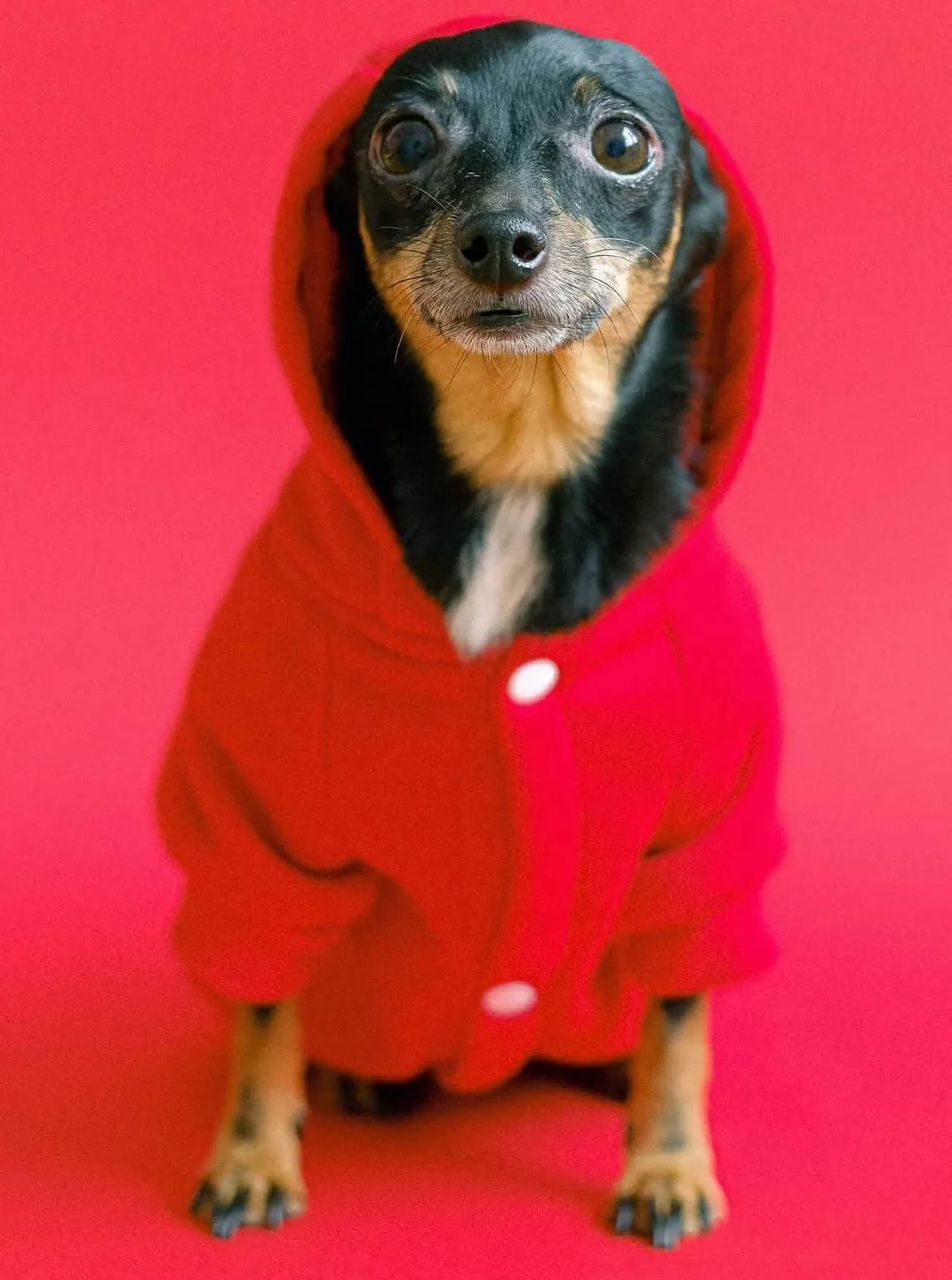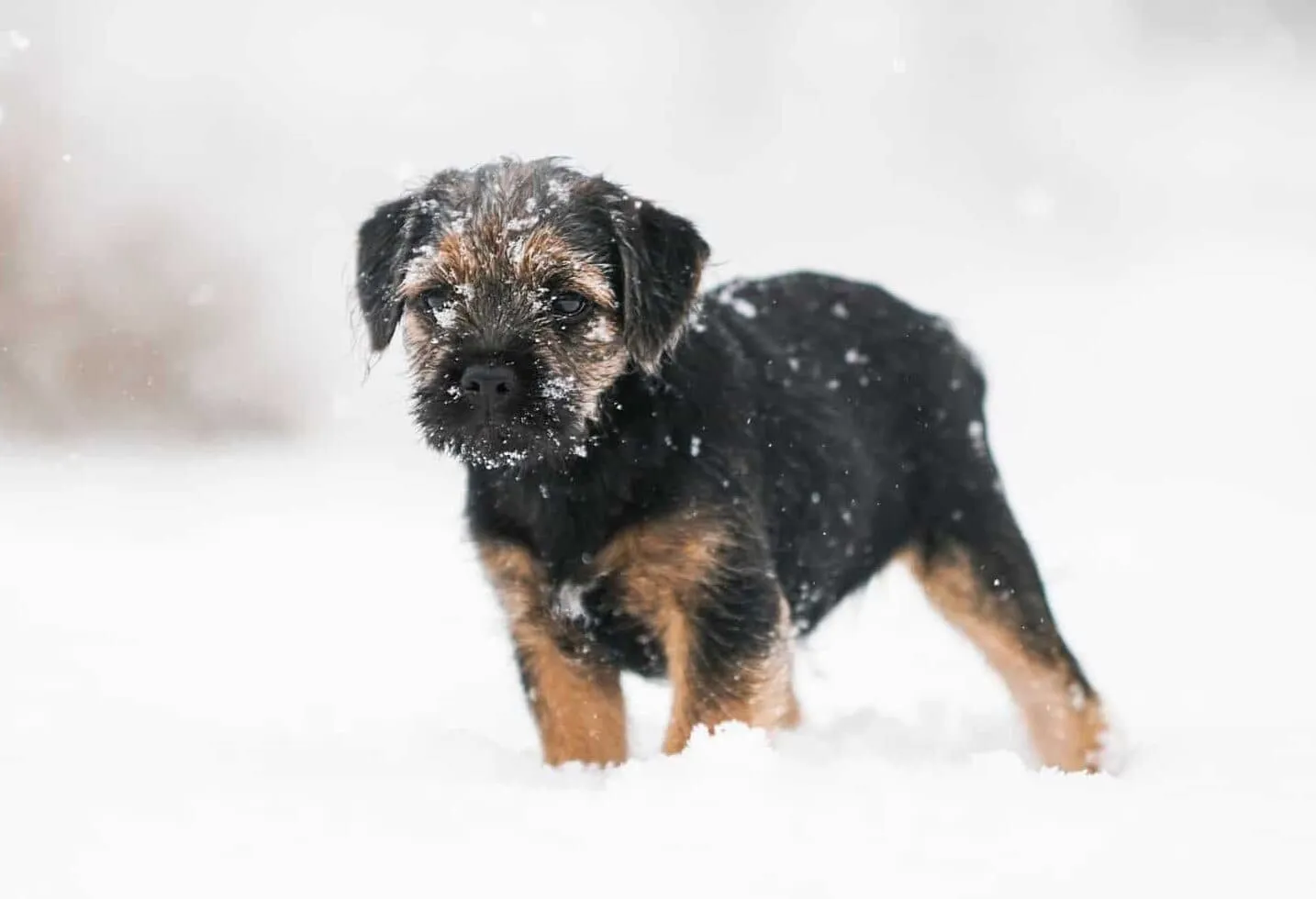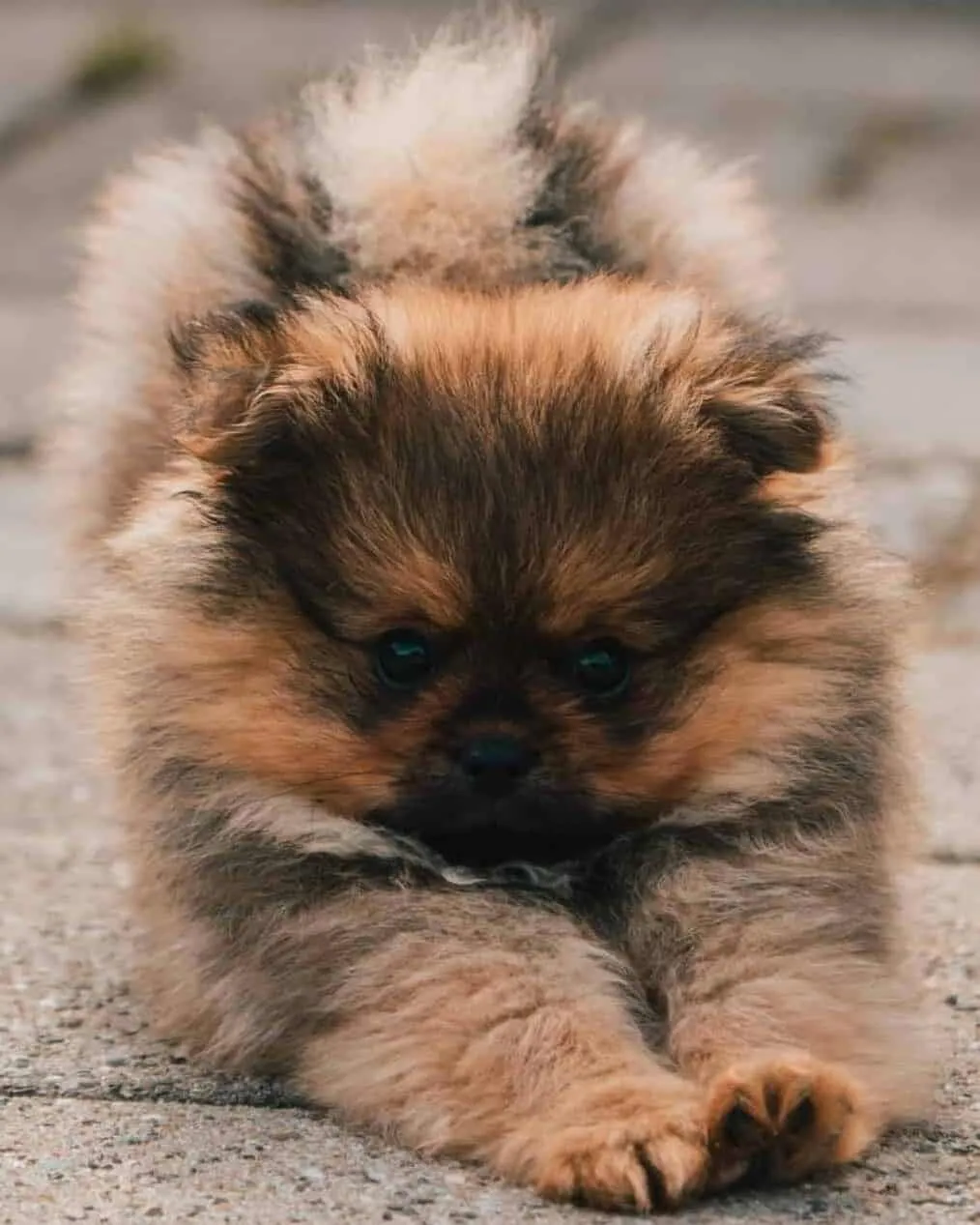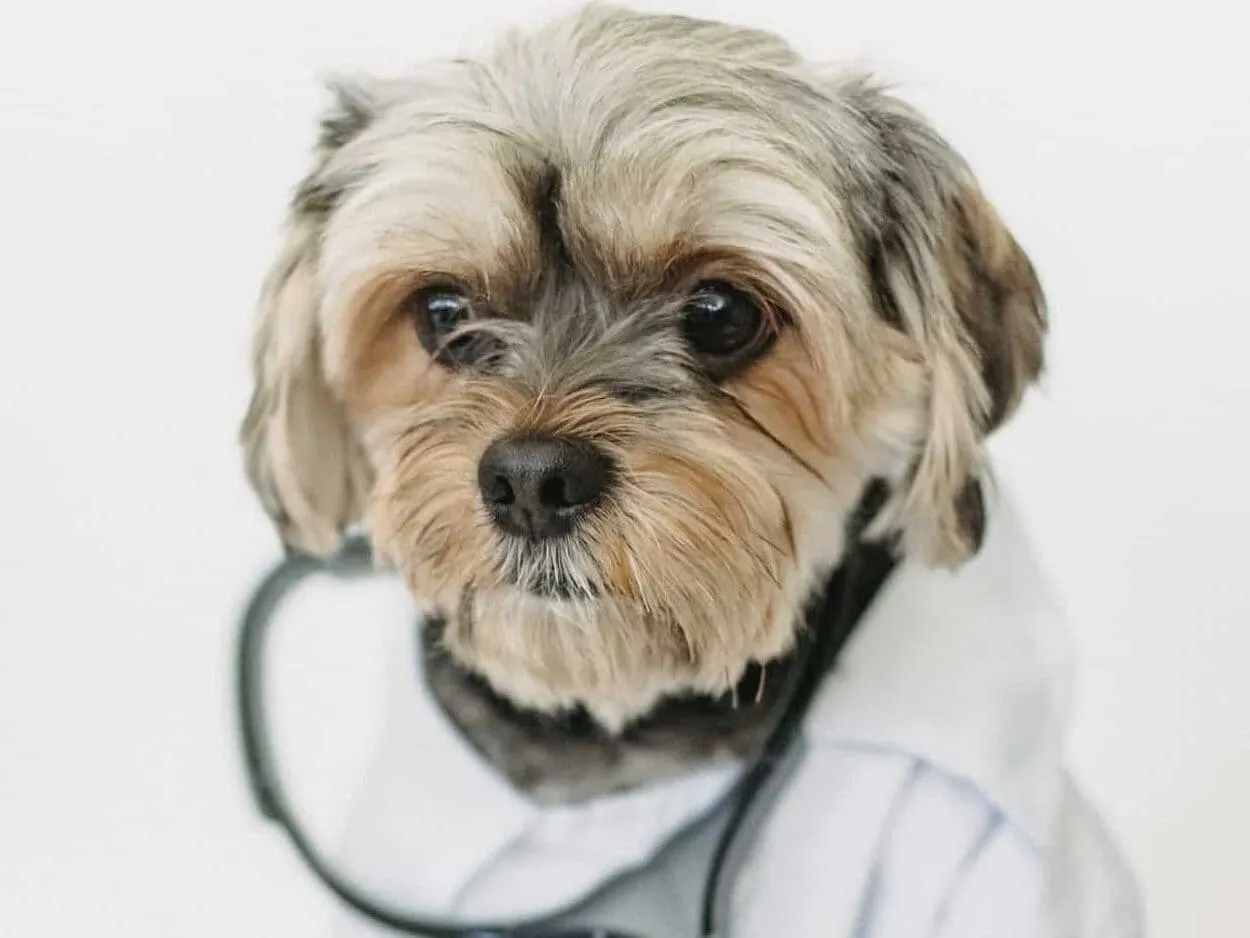With all the uncertainties happening right now, being extremely health-conscious has become part of the new normal. This covers not only taking care of ourselves but our loved ones as well. This includes our pets, too, as they are always part of our family.
One of the most exciting and fulfilling moments in a dog lover’s life is during the first few days of having a new puppy at home. However, taking care of a young pup also means that slight behaviors out of the ordinary can be something of concern.
So, you have noticed that your puppy is sneezing. It is kind of cute to watch him startled when he sneezes, but at the same time, you get paranoid. You begin to think of so many possibilities that would cause this.
In this blog post, we share with you here the need-to-knows on sneezing in dogs, its causes, what you can do to help, and when you should seek professional care.


Nootie Progility Allergy & Immune Supplement, Seasonal Allergies Advanced Immune Support Supplement for Dogs, 90 Soft Chews per Container
View on Amazon
Doc Ackerman's - Allergy Relief Formula - Fast Acting Anti-Itch Relief - Enhanced with Green Tea Extract, Papaya, & Mullein - Immune Support for Pets - Professionally Formulated Herbal Remedy - 10 oz
View on Amazon
HomeoPet Nose Relief, Safe and Natural Sinus Supplement for Cats, Dogs, and Other Small Animals, 15 Milliliters
View on AmazonWhy Is My Puppy Sniffling And Sneezing?
Why does my dog keep sneezing? Should I be worried if my puppy is sneezing?
These are just a few questions we desperately need answers to.
Being responsible puppy owners, it is always best to learn more about them to ensure they will grow healthy and happy.
Even if dogs sneeze as humans do, the reasons behind theirs are not always the same as ours. Puppy sneezing can be due to various reasons, some of which you might be unaware of. These can range from a behavioral manifestation to a medical infection.
When a dog is sneezing, it may be generally harmless. But, there are particular instances when they could indicate an underlying health problem. Here are the most common causes of sneezing among our furry friends.
Sneezing As A Puppy’s Biological Reaction
Obviously, a dog’s nose looks very different from a human’s. Nonetheless, their biological makeup is actually quite similar to ours. As a gateway to the lungs, the nose is, by default, a defense line for the respiratory system.
When an irritant enters the nasal tract, the body tries to eliminate it by explosively expelling air through the nose and mouth. This physical act is what is known as a “sneeze.”
A sneeze’s purpose is to clear the upper airway and curb congestion by dislodging particle buildups. Surprisingly, the mouth takes the brunt force of the sneeze, but a sizeable amount of the exhalation leaves the dog’s nose. It is a reflex reaction when nerve endings interact with a foreign element.
Stress Relief And Play Sneeze
According to dog behavioral experts, a sneeze is a type of dog communication to diffuse a stressful situation or express extreme happiness. We do not often think about sneezing in dogs as a behavior, but it is one way to calm themselves.
Moving into a new home, learning new routines and skills, and meeting new people or other pets can take their toll on them. If stress causes your puppy to sneeze, try to create a relaxing environment where he can feel safe and secure.
The other behavioral reason, the “Play Sneeze,” is what we hope your puppy has! Sometimes it is perfectly natural that exuberant joy or excitement can cause a dog to sneeze.
Some say that dogs wrinkle their noses when they get excited, which triggers a sneeze. When your dogs feel ecstatic in eager anticipation, perhaps for a treat or playtime in the yard, they can sneeze solely from excitement.
Inhaling Foreign Particles
“Nasal invaders” are always a risk for dogs with their insatiable curiosity. They would sniff at almost anything, aggravating the risk of inhaling something.
The risk greatly increases when you own a breed like a hound or hunting-specific canine that significantly utilizes his nose. Food, dirt, and hair can be inhaled or eaten by your dog. These small particles can become trapped in the respiratory tract and cause irritation. Dog sneezes could be your pet’s attempt at expelling these foreign particles.
Allergic Reaction
At a young age, allergic reactions can be more pronounced in puppies. Their immune system is in the premature development stage and is desperately trying to fight off irritants and disease-causing microorganisms.
If your puppy has a predisposition to allergies, you will see them manifest early on during this time. Some common puppy allergens are food, grass, pollen, dust, mold, chemicals like household products and perfumes, smoke, dry air, flea bite, and even other pets.
Respiratory Infections
Some dogs sneeze due to sinus or nasal cavity inflammation, colds, or other respiratory problems that can cause sneezing. These infections may be a result of the following invading pathogens:

Virus
These are often spread by close contact with infected dogs. The Canine Parainfluenza Virus and the Adenovirus are common viruses that can infect a dog’s immune system.
They may have a localized effect, causing nasal discharge, coughing, and sneezing. However, the worst ones, like the Distemper virus, can also lead to the infection of the nervous system.
Bacteria
Is sneezing a sign of kennel cough? What most people call the “Kennel cough” is caused by the bacteria Bordetella bronchiseptica.
It could be the reason why your dog keeps sneezing. This is highly contagious and is spread between dogs the same way the common cold is passed in humans.
Fungus
Fungi are found everywhere in our environment, but some dogs can develop a nasal or sinus infection from Aspergillus, Cryptococcus, and Blastomycoses. Once the fungus contacts the nose and sinuses, infection follows that can cause them to sneeze.
Immune-mediated Disease
Idiopathic lymphoplasmacytic rhinitis occurs when the respiratory system is overactive and creates inflammation in the nasal passages. It is a frequent cause of the chronic nasal discharge and sneezing.
Most internal infections have additional symptoms. These consist of watery eyes, swollen lymph nodes, pus or discolored mucus, coughing, breathing difficulties, lethargy, nose pain, diminished appetite, nosebleeds, and fever.
Nasal Mites
On rare occasions, nasal mites called Pneumonyssoides caninum cause sneezing in our dogs. This parasite has worldwide distribution but is endemic in Scandinavia. About 1–1.5 mm in size, they can hardly be seen with the naked eye.
Our pet ordinarily picks up these tiny bugs from getting to play with dust and digging in the dirt using their noses. When they contact our pet’s skin, they move and take up residence in the nasal passages. In there, they breed, causing your dog serious discomfort such as sneezing fits, nasal discharge, nose bleeds, labored breathing, head shaking, and facial itching.
Nasal Tumors
In rare situations, puppy sneezes can, unfortunately, signal the presence of a nasal tumor. This is more prevalent in longer-nosed canines or senior dogs older than eight years old.
The main cause of tumors in dogs’ airways is second-hand smoke. 80% of canine nasal tumors are cancerous. A good thing about them is that they are seldom expansive and typically stay within their point of origin.
However, nasal tumors tend to impair the nasal structure. As cancer progresses, so does the frequency of sneezing, which will eventually be accompanied by bloody discharge from the affected side of the dog’s nose.
Dental Problems
Puppies can also have dental problems that may cause sneezing. This is especially true if they are teething as some puppies may experience more distress during this stage.
In addition to that, the roots of a dog’s teeth are quite long. Some lie very close to the thin wall of tissue that separates the nasal from the oral cavity. When a dog develops a tooth root abscess or an infection behind the gum line, it could extend upward into the nasal passages, leading to inflammation and sneezing.
Brachycephalic Breeds
It is important to note that this breed is much more likely to sneeze (and wheeze) than other dogs. Some common ones are the Pug, Shih Tzu, Chihuahua, Pekingese, Lhasa Apso, Bullmastiff, English Toy Spaniel, Boston terrier, Bulldog, and Chow Chow.
These breeds all have what is known as brachycephalic airway obstruction syndrome (BAOS). What classifies them together is their genetically shortened heads and flatter faces.
Because their muzzles are closer to their cranium, the nose’s airways are shorter, more compressed, and sometimes deficient. A dog sneezing a lot may be triggered if he is exposed to some irritant or substance.
Reverse Sneezing
You might be more concerned if you notice your puppy suddenly makes repeated gasping or choking sounds. However, there is an innocuous reason for that scary noise --- the reverse sneeze.
More common in small and brachycephalic breeds, it is an involuntary gag reflex that forces a noisy and rapid inhalation to suck as much air through the mouth as possible.
The sounds that come with these episodes are typical honks, hacking-like chokes, or gurgling, while some associate it with a laughing noise. Your puppy will also stand with elbows apart, head forwards, or back before making the sound.
This weird spasmodic reflex is in response to irritation, inflammation, or a tickle in the back of the throat to help your dog remove foreign objects, allergens, or irritants.
While the reverse sneeze is quite harmless for some canines, it can still be a serious problem.
Sometimes your dog may also be snorting, which can be a sign of upper airway obstruction, or his excess weight makes it harder for him to breathe.

What You Can Do To Help
Generally, sneezing, as an isolated occurrence, is not indicative that something is wrong with your dog. It is part of a dog’s natural defense mechanism that will activate now and then.
You can enjoy those adorable moments when he suddenly sneezes but remember to be observant of anything out of the ordinary.
But when sneezing becomes frequent or continuous, you ask, “Why is my dog sneezing? And what can I do to stop it?”
Here are some tips on what you can do for your puppy on your own.
Remain calm and note the frequency and interval of the sneezing episodes.
Inspect the nose. With a good lighting source, check for nasal discharge, foreign objects, wounds, blood tinge, etc. Your dog may have something inside his nose.
Evaluate his overall health. How is he feeling today compared to the usual days? Watch out for other health symptoms that might indicate that he is ill. Try as much as possible to identify what caused your dog to sneeze.
If he seems to be in a lot of discomfort or cannot stop reverse sneezing, gently massage his throat or lightly blow in his face. This should trigger the swallowing reflex, which can help ease the spasms. Proper ventilation and some fresh air would help too.
Provide supplements
Provide your dog with a health supplement for allergy relief . Comfort him. A little love goes a long way when it comes to our pets.
When your dog is particular about taking his supplements, one that is simply added to your pet's food would likely make him take it without noticing.
When your dog sneezes as a biological reaction, there is no need to worry that much. Ordinarily, it takes at least one or two of these involuntary.
The same goes when there is behavioral sneezing (Stress-relief and Play Sneeze). It is a mere normal and innocent behavior. It just means that your puppy is having lots of fun enjoying himself.
You should also watch out for your puppy’s swollen or inflamed gums and other oral issues. Although a gum care solution is helpful, veterinary intervention is recommended if you think your puppy might have dental problems.
Clean out clogged nose and passageways
However, when you notice your dog sneezing due to inhaled particles, you should check if you can clear the compressed nasal passages.
A Nasal and Sinus Medicine for Pets would help dissolve hardened mucus and clear nasal congestion. It could provide instant results from sinus pressure.
If not, contact your vet immediately. They will assess the situation and prevent the particulate from lodging more deeply in the nasal cavity. This can help moisten dry nasal passages and wash out irritants.
Avoid allergens
If a dog’s sneeze is due to an allergic reaction, avoiding the allergen will also reduce its tendencies. Many allergies are then outgrown or become less severe while your puppy ages.
Try over-the-counter herbal remedies to boost immune support to treat mild symptoms of allergy.
And to boost the tolerance of his allergies, offer your dog this Herbal Pet Supplement . Also, clean your dog’s bed and the places where he frequently stays to remove dust, pollen, and dirt.
When Should I Take My Dog To The Vet For Sneezing?
If the respiratory infection causes sneezing in your pet, you should take him to the veterinarian as soon as possible.
Nasal mites are highly contagious and require medical attention. Bring your dog to the veterinarian for a check-up and prescription of topical or oral medication to eliminate and prevent nasal mites.
For Brachycephalic Breeds, surgery is sometimes necessary to open their airways. If a blockage occurs in the nasal cavity, the problem is usually more threatening for these breeds.
For consistent or long episodes of reverse sneezing or snorting, it is recommended that you have him examined by the veterinarian immediately.
Update his vaccinations. Vaccines are vital for a puppy’s health because if he is receiving regular booster shots, you may be able to rule out and prevent diseases from occurring in the first place.
Excessive Sneezing
For excessive sneezing or if you suspect that your pet has a serious problem, call your veterinarian right away.
Usually, your puppy’s occasional sneeze should not be an issue if not accompanied by other health symptoms.
However, immediate professional intervention may be required if your dog is sneezing excessively, especially without a clear cause. Observe him closely for signs and symptoms indicating a more complicated condition.
You should consult your vet as soon as possible if the condition causes your puppy itching or skin irritation, watery eyes, nasal discharge, traces of blood, swelling, fever, loss of appetite, sudden lethargy, a bluish tinge on his gums, hacking sounds, or breathing difficulties.
While sneezing itself could be no big deal, the reason behind it may require some deeper investigation. Your vet can rule out an illness that could necessitate additional treatment.

Prevention Is Better Than Cure
Though your puppy’s sneezing can be a bit alarming, you should also consider that it is a natural aspect of a dog’s life. As mentioned above, dogs sneeze to express their excitement, relieve stress, or expel a nasal irritant. Even your new puppy’s two random sneezes a day are quite normal as he is adapting to his life with you.
Be vigilant and make sure that your pet is always on top of its health. If your puppy sneezes several times daily, feels weak, or excretes nasal discharge, you should consider the possible deeper reasons.
Consult your veterinarian to find the source of the problem and for your puppy to get the proper treatment he needs as soon as possible.
As with anything related to overall health, it is always best to take extra precautions rather than regret it. Knowing a lot about the different causes of dog sneezing will help you understand more about your puppy’s sneezing manifestations.
You can then readily discern when you should remain calm if the sneeze is a normal occurrence or if it signals a more serious issue that you must address immediately.
Armed with this valuable information, you become more aware of what to look for next time and prevent it from aggravating. Hence, you can better ensure a healthy and happy life for your growing best buddy and share more years together.